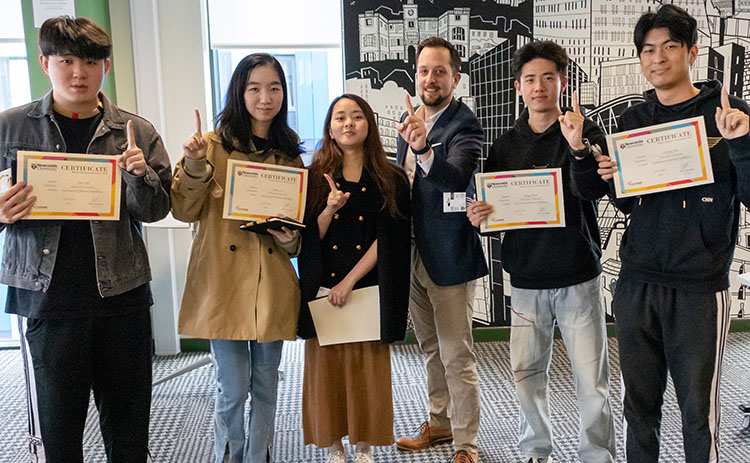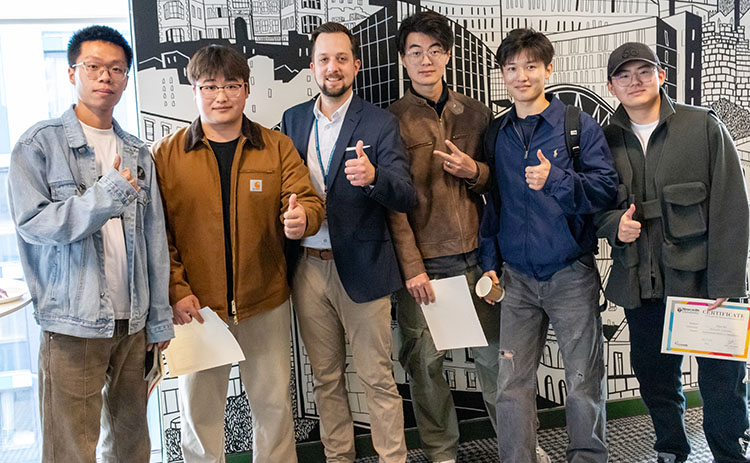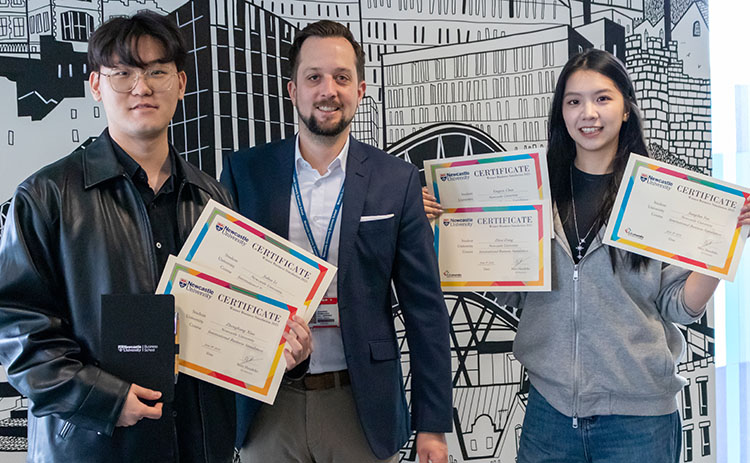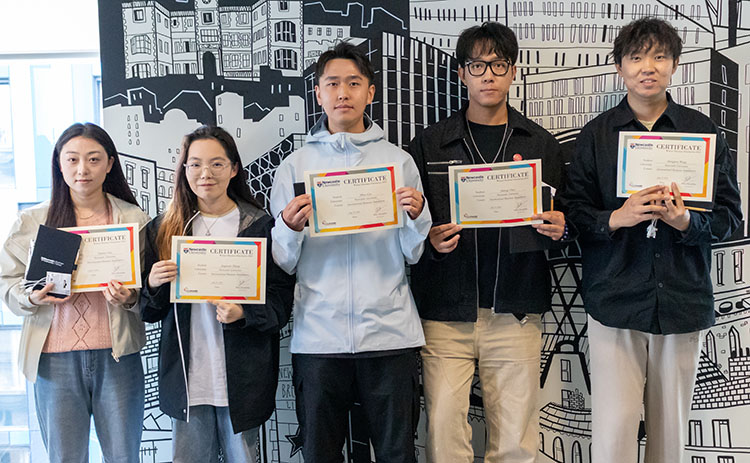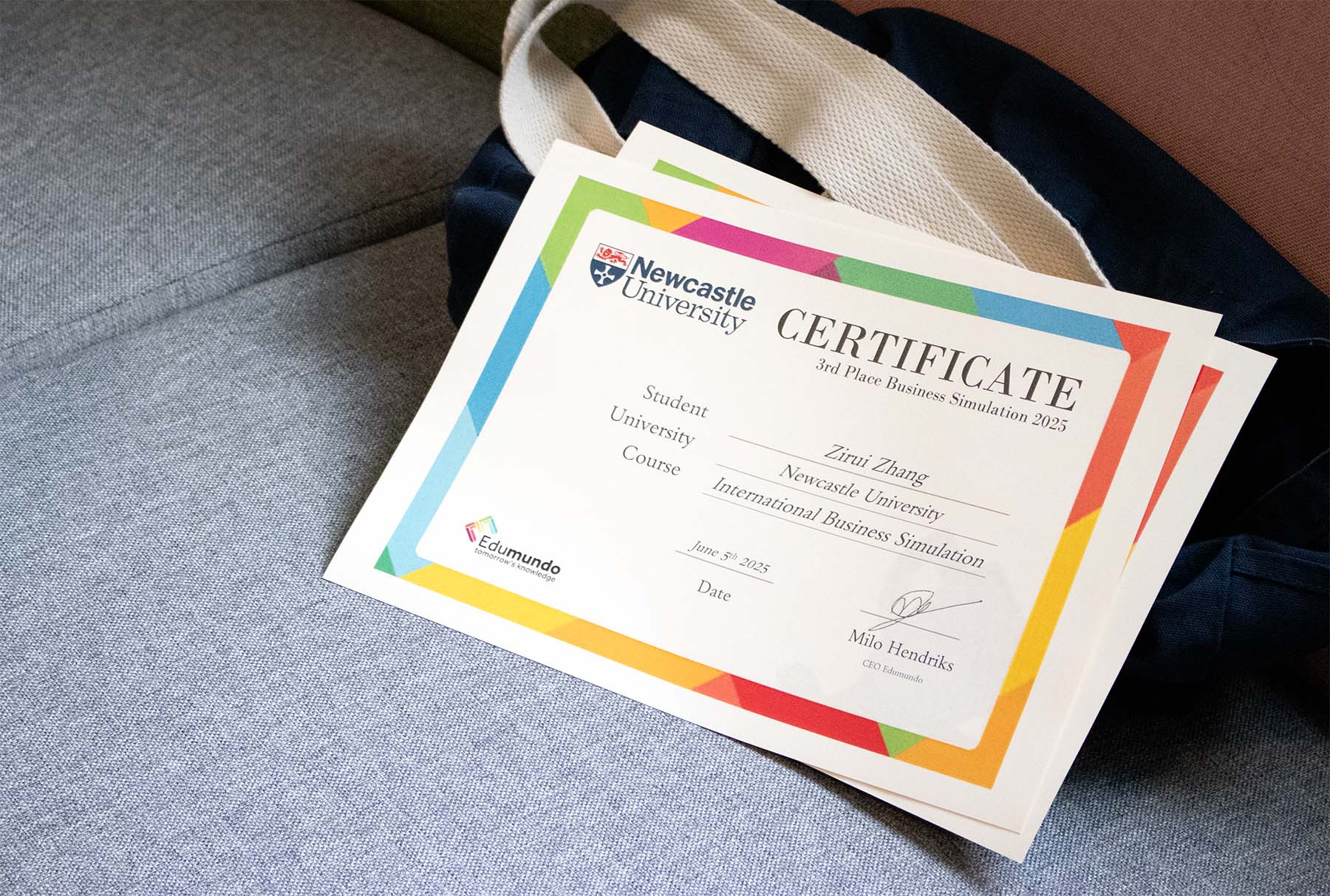Celebrating Strategic Success: Students celebrate success in simulation module with team awards
As the academic year draws to a close, MSc International Business students recently came together to celebrate a key milestone in their academic journey.
16 June 2025
The Strategic Business Analysis and Decision-Making module is a key part of learning for students on the MSc International Business programme and marks the end of the taught components on the programme. It is a practical and intense module that offers students a competitive and practical platform to integrate their learning and to develop their business analysis and strategic decision-making skills.
An experiential approach to international strategy
The Strategic Business Analysis and Decision-Making module is designed to offer students more than just theoretical insight—it immerses them in a practical, high-stakes business environment. Combining analytical rigour with teamwork, the module syllabus draws together a wide array of strategic competencies. The module is designed around the business simulation element in which students run their own company to compete in the international smartphone industry. Taking on the role of the company’s executive leadership team, the student groups develop a strategy for their company and, over the course of eight rounds, make a range of complex decisions and constantly analyse data to plan ahead, including on what markets to enter and how to internationalise.
This interactive format reinforces core principles taught across the programme and pushes students to integrate learning in real-time scenarios.
Dr Johannes Schmalisch, Deputy Degree Programme Director for the MSc International Business Management programme, explained: “For the students, this is always the highlight of the academic year, because they can practically apply what they have learned throughout the programme. For me, it was again fantastic to see the diverse student teams competing and working together. The winning teams have successfully navigated the complexity of the simulation by working together effectively.”
There were four winning teams in total, one for each of the four separate simulated ‘worlds’ of the simulation. Each of the worlds contained eight student teams and, due to different strategic choices by the students, there was some variety between the worlds in terms of the market dynamics and competitive environment. In some worlds there was heavy competition in the premium product segment, and in others a stronger focus on achieving cost leadership. The winning teams were successful due to their careful and constant evaluation of the market and strategic adaptability.
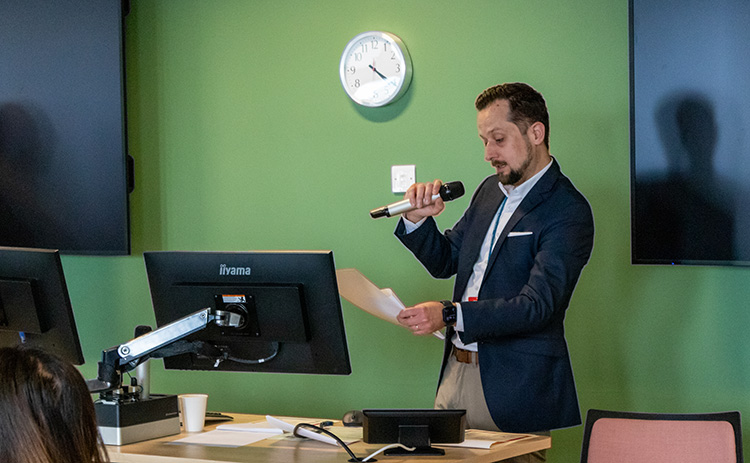
Yixiang Fang, International Business MSc student and a member of one of the winning teams, said: “The simulation made us feel like we were actually running a mini company—it was genuinely fun and, more importantly, challenged us to apply what we’d learned to real business problems, instead of just talking theory on paper.
If I had to sum it up in one sentence, I’d say success always comes down to people — not the structure or the planning, but the team itself. It was the individuals in our group that made the difference, and that’s what truly drove the outcome.”
Honouring achievement with an afternoon of appreciation
To mark the completion of the simulation, the School held an informal social event for students and staff. The gathering was an opportunity to reflect on the learning journey, reconnect with peers and colleagues, and recognise the achievements of the teams in the simulation.
This celebration is not only a way to honour student excellence but also a moment to acknowledge the shared efforts of the academic team that made the learning experience impactful.
